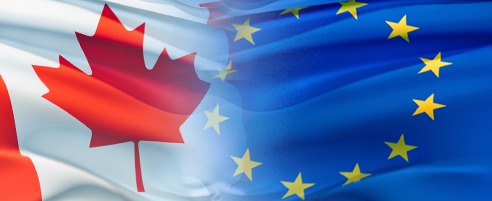- About
- Topics
- Picks
- Audio
- Story
- In-Depth
- Opinion
- News
- Donate
- Signup for our newsletterOur Editors' Best Picks.Send
Read, Debate: Engage.
One of the more curious facts about Europe at the moment, is that as conservatism grows across the continent, more radical, culture-shifting policies are pushed through. Brexit, potentially the most destabilizing political move in European post-war history, was delivered by a bunch of socially-conservative, timid people in a continent full of socially-conservative, timid people. More and more policies seem to veer in this direction - vast policy offerings with tremendous social implications. TTIP was an attempt in this vein, and it failed. CETA passed.
The Comprehensive Economic and Trade Agreement will eliminate all but 2% of the tariffs existing between the EU and Canada. After all EU nations agreed to CETA, only objections by Belgian farmers held up the deal last week. They were mollified however, and the deal was signed over the course of the weekend. While the deal will still have to be properly affirmed through individual countries' legislative bodies, it is all but done.
The deal will enable Canada to trade with the EU and therefore become less reliant on the US as a trading partner; The EU has secured its first deal with a G7 member, which strengthens the possibility that the Transatlantic Trade deal with the US will be revived shortly. Economists and neoliberal politicians have hailed CETA as a monumental step forward, with the President of the EC, Jean-Claude Juncker saying 'all's well that ends well'.
Why are people against CETA - it provides economic growth and jobs, after all?
Well, opposition to CETA say that the reduction in tariffs will lead to a neoliberal-style free-trading, which normally means - poor people in poor countries produce goods for rich countries, and producers in rich countries are driven out by this competition. It also normally means those poor people in poor countries remain poor, and the rich in rich countries get richer. Normally.
CETA critics also claim it will make it easier for corporations to challenge governments on a legal basis, much like the Phillip Morris/ Australia case.
Lack of transparency: Throughout the entire negotiation process, CETA excluded civil society groups and society at large.
Well, it's through now. However, opposition to CETA groups are still urging people to challenge their national governments over the decision.
http://waronwant.org/media/trade-deal-ceta-signed-ropes
Why not check out our other article on illegal organ trafficking?
